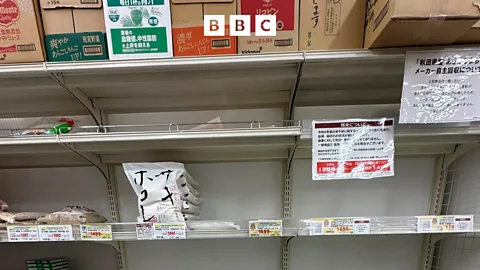
The Inquiry
The Inquiry
What does Japan’s rice crisis say about its economy?
Up next
May 22, 2025
23 minutes
Available for over a year
A domestic rice shortage in Japan has caused supermarket shelves to empty and prices to double. Rice is more than a staple food in Japan—it carries deep cultural, historical and even spiritual significance.
The rice crisis highlights broader weaknesses in Japan’s economy. Japan imports over half of its food and has experienced persistent inflation. The country’s economic resilience is being tested by supply chain pressures, demographic shifts, and increased trade tensions.
Efforts to address the shortage have focused on auctioning rice reserves, but underlying economic challenges persist.
Contributors:
• Yi-Chun Ko, Professor, Asian Growth Research Institute, Fukuoka, Japan
• Emiko Ohnuki-Tierney, William F. Vilas Research Professor, University of Wisconsin–Madison, US
• Stefan Angrick, Senior Economist, Moody’s Analytics, Tokyo, Japan
• Norihiro Yamaguchi, Lead Economist, Oxford Economics, Tokyo, Japan
Presenter: Charmaine Cozier
Producer: Louise Clarke
Researcher: Katie Morgan
Editor: Tara McDermott
Technical producer: Richard Hannaford
Production Management Assistant: Liam Morrey

